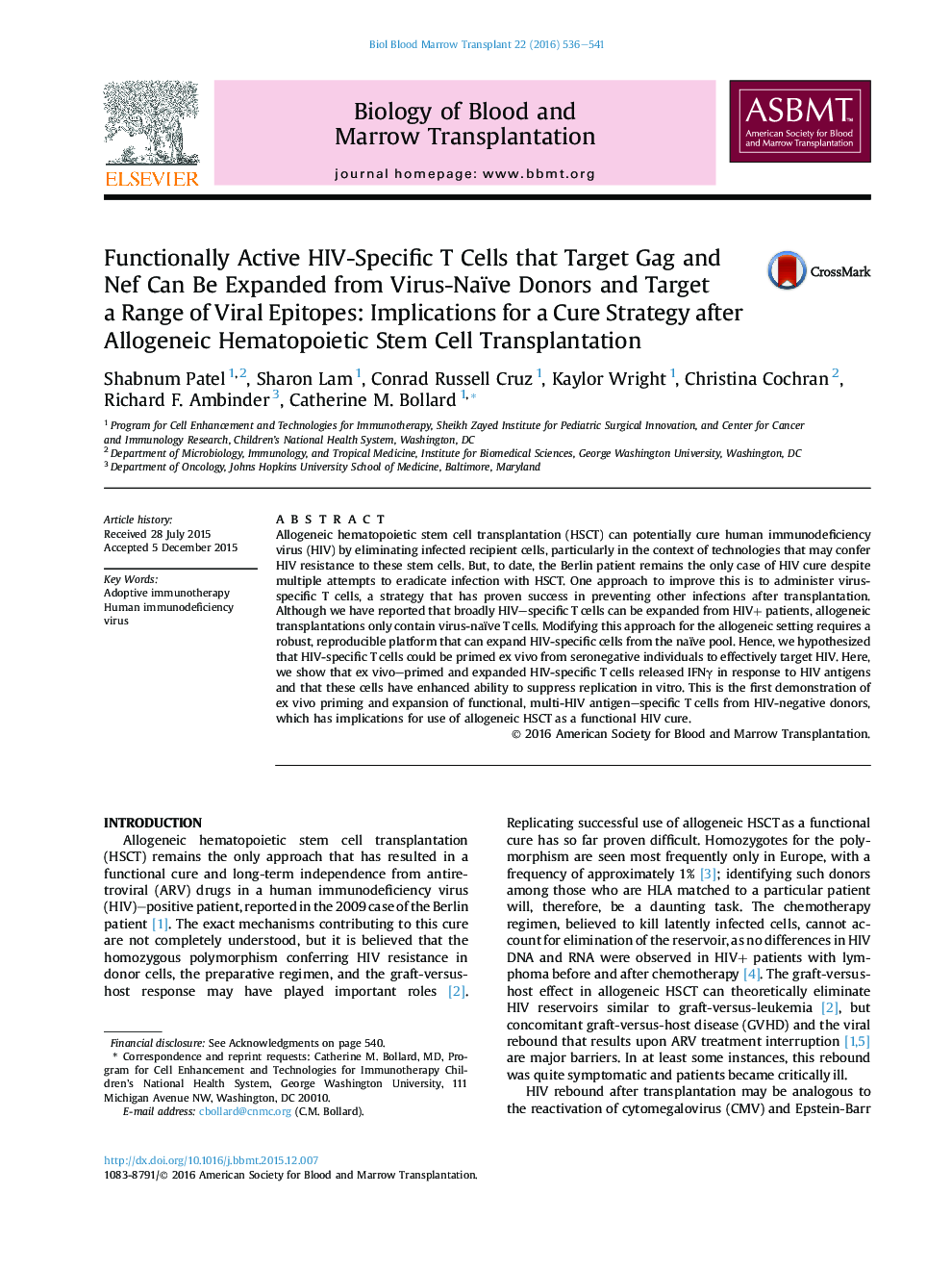| Article ID | Journal | Published Year | Pages | File Type |
|---|---|---|---|---|
| 2101808 | Biology of Blood and Marrow Transplantation | 2016 | 6 Pages |
•Method of generating human immunodeficiency virus–specific T cells from healthy/seronegative donors demonstrated•Antigen-specific T cells recognizing multiple antigens can suppress viral replication in vitro•Protocol can serve as the framework for an immunotherapy approach for treating human immunodeficiency virus patients in the context of allogeneic hematopoietic stem cell transplantation.
Allogeneic hematopoietic stem cell transplantation (HSCT) can potentially cure human immunodeficiency virus (HIV) by eliminating infected recipient cells, particularly in the context of technologies that may confer HIV resistance to these stem cells. But, to date, the Berlin patient remains the only case of HIV cure despite multiple attempts to eradicate infection with HSCT. One approach to improve this is to administer virus-specific T cells, a strategy that has proven success in preventing other infections after transplantation. Although we have reported that broadly HIV–specific T cells can be expanded from HIV+ patients, allogeneic transplantations only contain virus-naïve T cells. Modifying this approach for the allogeneic setting requires a robust, reproducible platform that can expand HIV-specific cells from the naïve pool. Hence, we hypothesized that HIV-specific T cells could be primed ex vivo from seronegative individuals to effectively target HIV. Here, we show that ex vivo–primed and expanded HIV-specific T cells released IFNγ in response to HIV antigens and that these cells have enhanced ability to suppress replication in vitro. This is the first demonstration of ex vivo priming and expansion of functional, multi-HIV antigen–specific T cells from HIV-negative donors, which has implications for use of allogeneic HSCT as a functional HIV cure.
Graphical AbstractPriming and Ex Vivo Expansion of Specific T Cells Specific for Multiple HIV Antigens from Healthy/Seronegative Donors.Figure optionsDownload full-size imageDownload high-quality image (112 K)Download as PowerPoint slide
